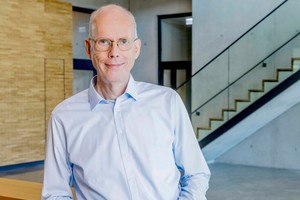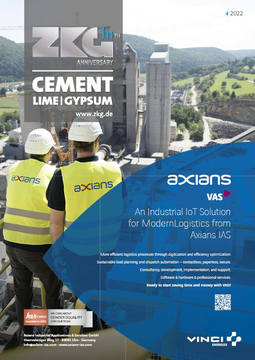As VDZ, we congratulate ZKG Cement Lime Gypsum very warmly on its 111th anniversary. There are few institutions in the cement and lime industry that can look back on such a long tradition. For generations of employees in our industry, ZKG was and is compulsory reading and in this respect we are pleased that ZKG is also today an important platform through which essential information from our industry, but also on current topics in cement production, is disseminated worldwide.
The cooperation between ZKG and VDZ has a long tradition and we are very happy to continue working together on this basis.
The issues that are currently of most concern to the cement industry worldwide are the many questions surrounding sustainability, in particular the reduction of CO2 emissions against the background of global climate protection. Cement companies, for example, are working flat out to further optimize their processes, even though a great deal has already been achieved in this area. The focus is on the increasing use of alternative fuels, particularly with biomass. There is still great potential here worldwide which can without question make its contribution to reducing fuel-related CO2 emissions.
By lowering the clinker factor, it will increasingly be possible to reduce a proportion of process-related emissions as well. Ultimately, however, the question arises as to how the remaining CO2 emissions can be reduced to net zero in 2050. The corresponding roadmaps clearly show the way. VDZ has set a clear signal here for Germany, but the path has also been mapped out in other countries and at the global level by the Global Cement and Concrete Association (GCCA).
For the first time, cement producers feel that they can only meet this enormous challenge if they succeed in working together with political decision-makers and the public to this end. The investments to be made are gigantic, the use or storage of CO2 must be made possible and, in addition, corresponding amounts of green energy must be available. Cement manufacturers worldwide will make their contribution to this solution in order to successfully manage the transformation that is currently underway.
At the same time, it is important to exploit the further potential in the further development of the cement production process. Digitalization will make its contribution to this. The information flow of digital data from cement production to concrete production to buildings and infrastructure projects will also help to better address the issue of CO2 along the entire value chain of cement, concrete and construction. The same applies to automation in the plants themselves. In addition to the actual digital applications, the most important thing will be to set uniform standards so that good solutions can be applied on a broad scale.
It is important that good solutions find their appropriate distribution. This is where a magazine like ZKG has enormous importance and responsibility. I am sure that ZKG will address these issues and increasingly also help to ensure an appropriate exchange of information between cement manufacturers. For the time ahead, VDZ wishes ZKG good luck, a happy hand and much success.


